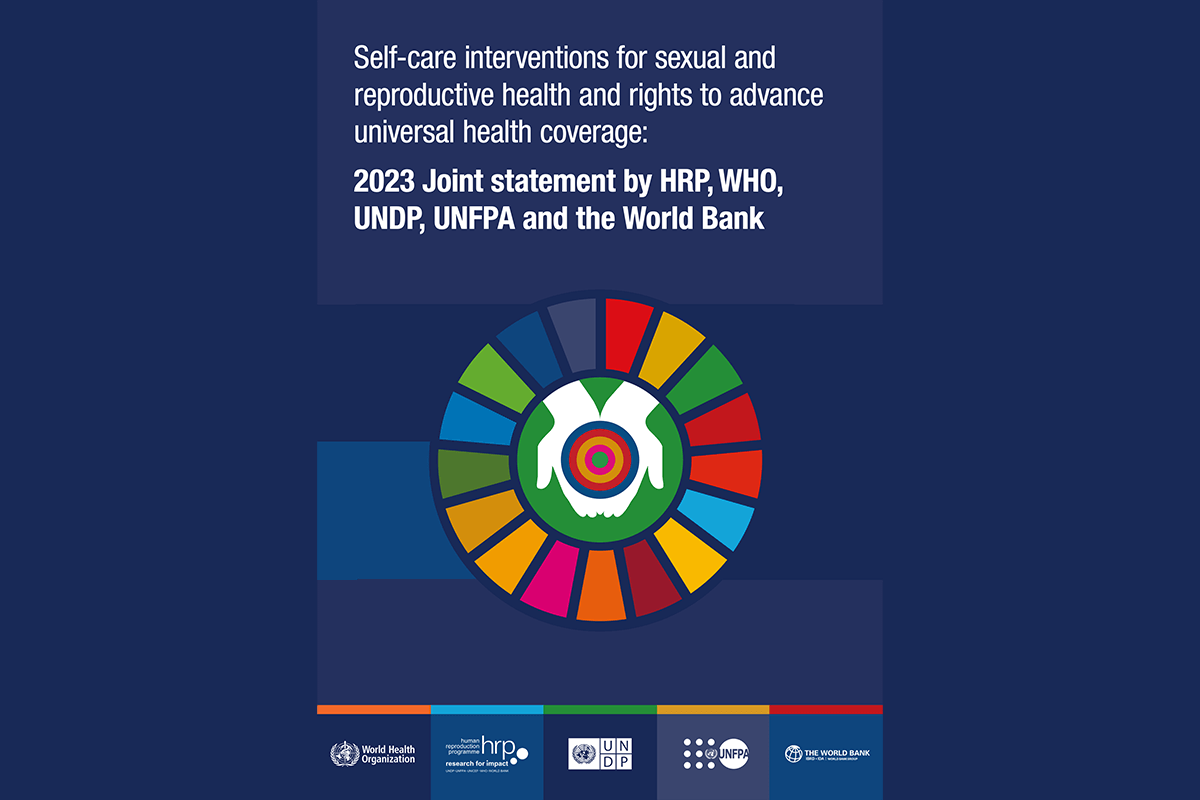
SELF-CARE INTERVENTIONS – Joint statement by HRP, WHO, UNDP, UNFPA and World Bank
Background
“The right to health is a fundamental human right enshrined in international human rights law. Yet health inequities are prevalent throughout the world. At the end of 2021, there were 89.3 million people worldwide who had been forced to flee their homes due to conflicts, violence, fear of persecution and human rights violations (1).
“According to the latest available data, over half of the world’s population lack access to essential health services (2), and health worker shortages are estimated to reach 10 million by 2030 (3). These contextual factors point to an urgent need to explore innovative strategies – that go beyond a conventional health-sector response – for reaching people with the health services they need.
“Self-care interventions offer huge potential to enhance individual agency and reduce health inequities by increasing the availability of accessible, acceptable and affordable health-care options that are in addition to and can complement services and care received at a healthcare facility. As we reach the half-way mark towards the end of the 15-year Sustainable Development Goals (SDGs) period, and we look at the challenges facing the world, we need to embrace potentially transformative solutions. WHO recommends self-care interventions for every country and economic setting, as critical tools on a path to improve primary health care, reach universal health coverage (UHC), promote health, keep the world safe and serve the vulnerable.”
Definitions
“Self-care: the ability of individuals, families and communities to protext their own health, prevent disease, and maintain health and cope with illness and disability with or without the support of a health worker.
“Self-care interventions: the evidence-based, quality tools that support self-care, including medicines, medical devices, counselling, diagnostics and/or digital technologies that can be accessed fully or partially outside of formal healthcare facilities. Depending on the intervention, they can be used with or without the support of health workers.
“Universal health coverage: UHC is achieved when all people have access to the full range of quality health services they need, when and where they need them, without financial hardship.”
Self-care interventions for sexual and reproductive health and rights


The full report also covers Action, Financing, Workforce, Partnerships and Accountability, Regulation of Quality, and Research.
SOURCE: World Health Organization, 2023.



